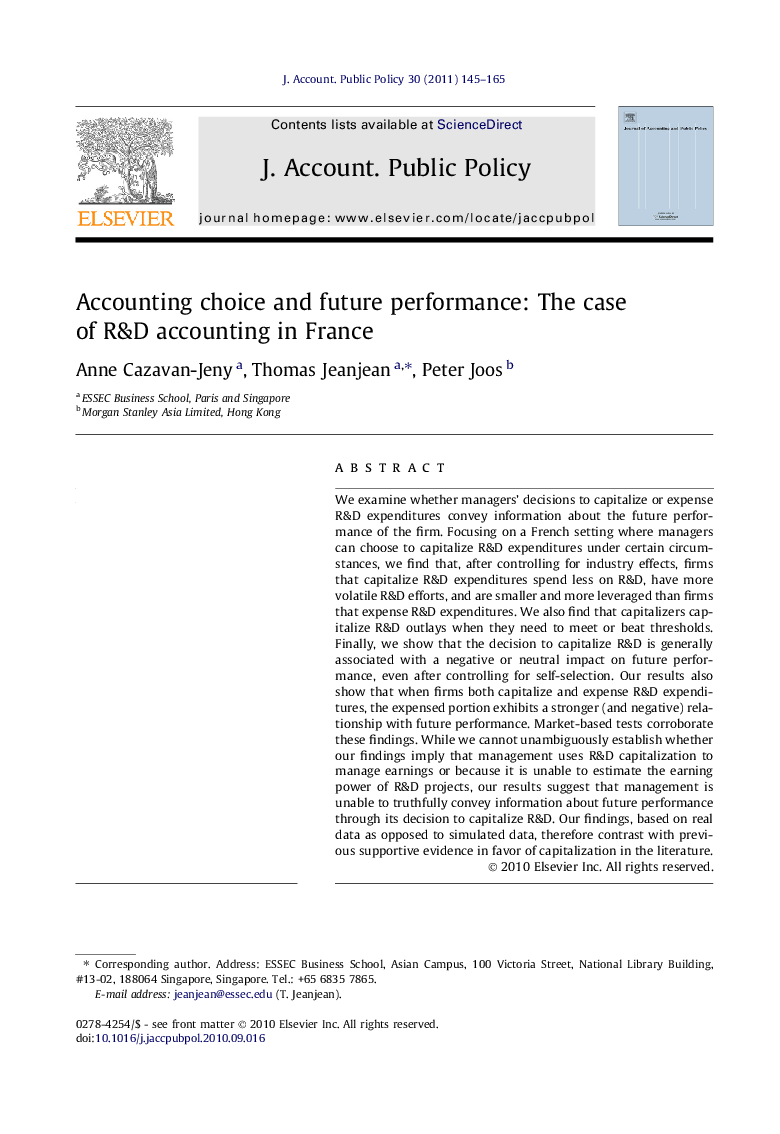| Article ID | Journal | Published Year | Pages | File Type |
|---|---|---|---|---|
| 1005973 | Journal of Accounting and Public Policy | 2011 | 21 Pages |
We examine whether managers’ decisions to capitalize or expense R&D expenditures convey information about the future performance of the firm. Focusing on a French setting where managers can choose to capitalize R&D expenditures under certain circumstances, we find that, after controlling for industry effects, firms that capitalize R&D expenditures spend less on R&D, have more volatile R&D efforts, and are smaller and more leveraged than firms that expense R&D expenditures. We also find that capitalizers capitalize R&D outlays when they need to meet or beat thresholds. Finally, we show that the decision to capitalize R&D is generally associated with a negative or neutral impact on future performance, even after controlling for self-selection. Our results also show that when firms both capitalize and expense R&D expenditures, the expensed portion exhibits a stronger (and negative) relationship with future performance. Market-based tests corroborate these findings. While we cannot unambiguously establish whether our findings imply that management uses R&D capitalization to manage earnings or because it is unable to estimate the earning power of R&D projects, our results suggest that management is unable to truthfully convey information about future performance through its decision to capitalize R&D. Our findings, based on real data as opposed to simulated data, therefore contrast with previous supportive evidence in favor of capitalization in the literature.
